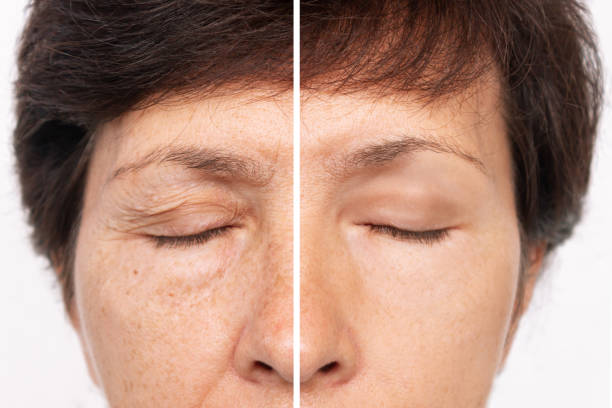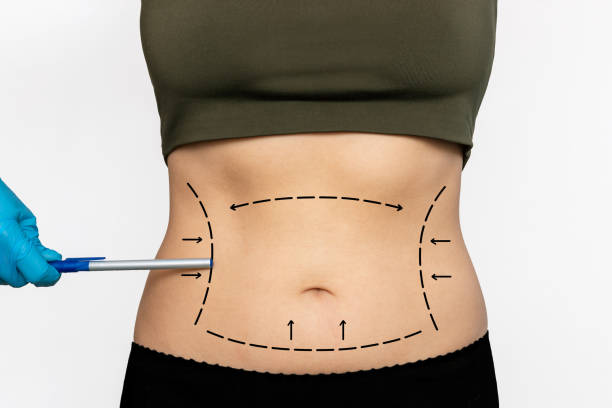Blepharoplasty in Abu Dhabi, also known as eyelid surgery, has gained significant popularity in Abu Dhabi. This cosmetic procedure helps to rejuvenate the appearance of the eyes, removing excess skin, fat, or muscle. While it can provide dramatic improvements, there are risks and complications that patients need to be aware of. Let’s dive into what you need to know about blepharoplasty, focusing on the potential risks and how to mitigate them.
Understanding Blepharoplasty
Blepharoplasty involves reshaping the eyelids, which can be performed on the upper eyelid, lower eyelid, or both. In Abu Dhabi, people choose this surgery for a variety of reasons, ranging from cosmetic desires to medical needs. The procedure is relatively quick, usually lasting one to three hours, depending on the complexity.
Why People Opt for Blepharoplasty
People in Abu Dhabi opt for blepharoplasty for both cosmetic and functional reasons. Cosmetically, it can make you look younger by eliminating sagging skin and reducing eye bags. Functionally, it can improve vision by removing excess tissue that may be obstructing the view. Social trends and a focus on beauty in the region have also contributed to the growing demand for this surgery.
Common Risks Associated with Blepharoplasty
While blepharoplasty is generally safe, it does carry certain risks. Infection is one of the most common risks, which can occur if the surgical site isn’t properly cared for. Surgeons usually prescribe antibiotics and advise on proper cleaning to prevent this. Hematoma or bleeding can also happen, especially if the patient has underlying health conditions or takes blood-thinning medication.
Complications of Blepharoplasty
Complications can arise during or after surgery. During surgery, accidental damage to surrounding tissues is a risk, which is why it’s crucial to choose an experienced surgeon. After surgery, common complications include swelling, bruising, and discomfort. In rare cases, there might be more severe issues like ectropion (outward turning of the eyelid) or entropion (inward turning of the eyelid), requiring additional correction.
Anesthesia-Related Risks
Blepharoplasty can be performed under local or general anesthesia. Both come with their risks. Local anesthesia may cause an allergic reaction or excessive bleeding, while general anesthesia carries risks like respiratory issues or heart complications. Choosing a reputable clinic with experienced anesthetists can minimize these risks.
Scarring Risks
Scarring is another risk associated with blepharoplasty. Although surgeons aim to make incisions in inconspicuous areas, some patients may develop noticeable scars due to their skin type or improper post-surgery care. Following your surgeon’s advice on scar management and using recommended creams or treatments can help reduce scarring.
Vision Problems
Blepharoplasty can, in rare cases, lead to temporary or permanent vision issues. This can occur if there’s damage to the eye during surgery or excessive swelling that puts pressure on the eye. If you experience any vision problems after surgery, seek medical attention immediately.
Dry Eyes and Other Discomfort
Dry eyes are a common discomfort after blepharoplasty. This happens because the surgery may alter the way your eyes produce or distribute tears. Surgeons usually recommend lubricating eye drops to manage this. Other discomforts like bruising and swelling are expected, but they generally subside within a couple of weeks.
Asymmetry and Unsatisfactory Results
Sometimes, blepharoplasty may result in asymmetry, where one eyelid appears different from the other. This could be due to uneven healing or surgical errors. Unsatisfactory results can also stem from unrealistic expectations. If you’re unhappy with the results, discuss corrective options with your surgeon, but remember, healing can take several weeks to months.
Allergic Reactions and Medication Risks
Patients can have allergic reactions to the medications or materials used during blepharoplasty. This is why it’s crucial to inform your surgeon of any allergies or sensitivities beforehand. Proper medication use is also essential to avoid complications; never self-medicate or deviate from the prescribed regimen.
Emotional and Psychological Impact
Blepharoplasty can have a significant impact on self-esteem and body image. While it often leads to a confidence boost, it can also trigger dissatisfaction if results don’t meet expectations. It’s crucial to have realistic expectations and maintain open communication with your surgeon. If you’re struggling emotionally after surgery, consider seeking support from a mental health professional.
Choosing the Right Surgeon
Selecting the right surgeon is one of the most critical factors in avoiding risks and complications. In Abu Dhabi, look for a board-certified plastic surgeon with experience in blepharoplasty. Ask questions during the consultation about their experience, success rates, and approach to complications.
Post-Operative Care and Follow-Up
Proper post-operative care is crucial for a successful recovery. Follow your surgeon’s instructions regarding cleaning, medication, and activity restrictions. Regular follow-up visits help monitor your healing and catch any complications early. Don’t skip these appointments; they’re essential for your well-being.
Conclusion
Blepharoplasty can be a life-changing procedure, but it comes with risks and complications that patients in Abu Dhabi should know about. From infection risks to anesthesia complications, understanding these potential issues can help you make informed decisions and reduce the likelihood of adverse outcomes. Choose a skilled surgeon, follow post-operative care instructions, and maintain realistic expectations to ensure a successful result.
FAQs
- Is blepharoplasty painful?
- Most patients experience some discomfort rather than intense pain. Surgeons typically prescribe pain medication to manage it.
- How long does it take to recover from blepharoplasty?
- Recovery usually takes two to four weeks, but complete healing can take several months.
- Can I wear makeup after blepharoplasty?
- It’s best to avoid makeup until your surgeon gives the green light, as it can increase infection risks.
- Are the results of blepharoplasty permanent?
- Results can last for years, but the aging process continues, which may require future touch-ups or additional surgeries.
- What is the best age to have blepharoplasty?
- There’s no specific best age; it depends on individual needs and expectations. Consult with a surgeon to determine if you’re a suitable candidate.



